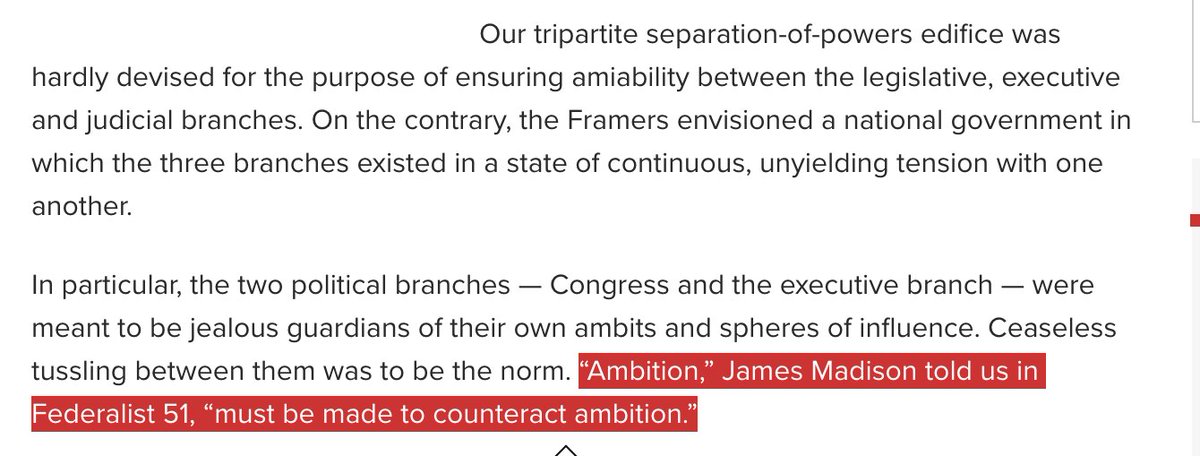
🧵 History of the pardon power is very interesting. I consider the dynamic similar to SCOTUS having discretion over what cases it will hear. There are some cases that the country cannot afford to decide either way. Pardons are a way to dodge such a decision.
The whole point is they don't come down on one side of the dispute or the other; they remove the dispute from the system altogether. That is why Congress should have nothing to do with it. It cannot be partisan or majority driven. That would legitimate rather than neutralize.
A ton of pardons are for rebellion, treason, sedition, mutiny, and insubordination. In these cases, the behavior probably met the legal definition of treason, but getting into the issue of whether the person was a traitor "in spirit" was not desirable. We can see why: 

Interestingly, in the years leading up to the Civil War, there were pardons for helping slaves escape. This was illegal, but they didn't want to decide whether it was wrong. The types of pardons granted in a certain era are probably a good indicator of political stability. 

A few pardons involved Mormons. The decision being avoided was whether the Mormons had some claim to sovereignty that made federal law irrelevant. The Ex-Confederate pardons were similar, but with the added element of treason.
Lincoln's pardons don't lend themselves well to a discussion of norms. He's also being canceled for his role in the Minnesota case, but he reviewed the case files and pardoned almost all of them. He refused to pardon anyone, including U.S. soldiers, accused of "violating women." 

After they pardon the last of the Confederates, it gets fairly boring. Few big rebellious movements that could threaten the increasingly powerful federal government. Mostly pardons for elaborate corruption, violating Prohibition, and publishing censored information.
Presidential pardons can only be a personal judgment. And Presidents may have knowledge we don't. Only they can judge whether something might be about to destabilize the country, through some chain of causation.
This does vest extraordinary power in one person, and seems to incentivize bad behavior. My response to that is that the system assumes anyone who gets enough votes from the American people to become President can't be all that bad. Tough sell, but I basically agree.
In other words, they might use pardons to cover their mistakes, but they don't set out to take advantage of the system in total disregard of the national interest. They, or their associates, get overconfident or in over their heads.
But the finality and inability to diffuse responsibility is essential to the process. If it was subject to game-playing or justification, it would have no value in defusing tension among elites or radicals, or preempting destabilizing scandals.
Two helpful examples: 1) What if a celebrated military leader is caught committing treason in the middle of a war? You have to remove him, but telling the public and soldiers all the details may demoralize them into losing the war. Better to pardon and avoid an investigation.
2) What if, in the middle of a crisis, a family member of a president is being blackmailed for involvement in a crime? Essentially being used as a hostage by someone facing prison time? The president can't be expected to think straight with that going on. Better to pardon.
In that case, he could resign, but I'm talking about a situation in which the country really needs his services and a competent replacement is not readily available. And the same could be true if a valuable Cabinet member had a family member being blackmailed. /🧵
• • •
Missing some Tweet in this thread? You can try to
force a refresh







